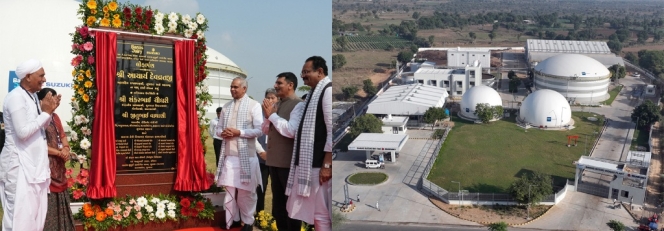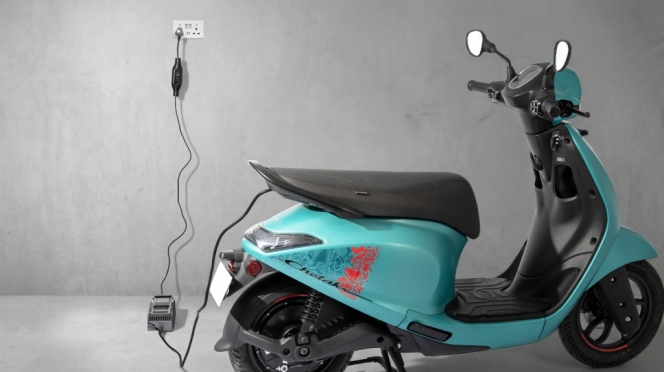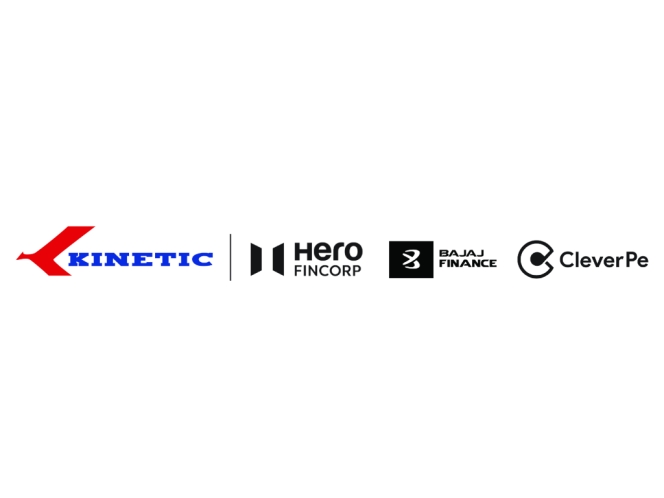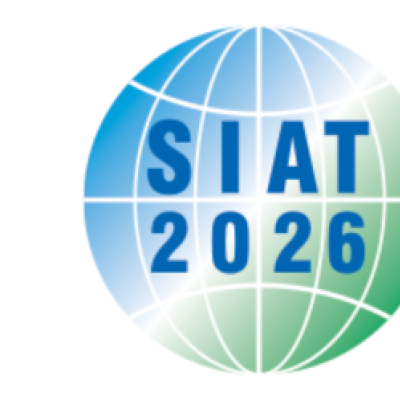- Kinetic Green Energy and Power Solutions
- Tonino Lamborghini
- Kinetic Green
- Dr Sulajja Firodia Motwani
- Ferruccio Lamborghini
Kinetic Green, Tonino Lamborghini Unveil Electric Carts For Global Market, Target $300M Revenue In 5 Years
- By MT Bureau
- July 17, 2025
Pune-based electric vehicle manufacturer Kinetic Green Energy and Power Solutions, along with its global partner Italy's Tonino Lamborghini, officially launched their range of luxury electric golf and lifestyle carts.
This global unveiling marked Kinetic Green's entry into the bespoke electric four-wheeler market segment, which is part of its ambitious future strategy. The joint venture has set ambitious financial targets, aiming for an annual revenue goal of USD 300 million within the next five years. This aggressive growth plan underscores the company's confidence in disrupting the estimated USD 5 billion global electric golf and lifestyle cart market.
The partners stated that the new Tonino Lamborghini golf and lifestyle carts represent a unique synergy of sophisticated Italian design and robust Indian engineering. These advanced electric vehicles, conceived in Italy, will be manufactured in India and marketed globally under the prestigious Tonino Lamborghini brand, featuring the iconic red shield with the Bull emblem.
The carts will be available in two-seater, four-seater, six-seater and eight-seater configurations to meet a diverse range of applications, including championship golf courses, luxury resorts and hotels, private estates, gated communities, airports, corporate campuses, large recreational and industrial facilities.
The partners have introduced two distinct series:
- The Genesis Range: A tribute to the brand's origins, featuring chic Italian design.
- The Prestige Range: An ultra-premium, futuristic offering representing a legacy for the future.
Dr. Sulajja Firodia Motwani, Founder and CEO of Kinetic Green said, "For a long, the golf cart segment has awaited a true disruptor – an extraordinary offering that transcends the mundane. Over the years, the use of golf carts has extended well beyond golf to luxury resorts, world-class airports, sprawling townships and corporate campuses and to personal use. But the design and specifications of popular golf carts has remained much the same, and this is where we see a large global market ready for disruption! Our JV will leverage the long legacy of the Kinetic Group in automotive engineering, Kinetic Green’s pioneering expertise in design and manufacture of electric vehicles and the experience of our partner, Tonino Lamborghini’s global experience in redefining design and lifestyle experiences and to top it all, marketing our products globally using the famous red shield with the iconic Bull. This fusion of our robust Indian engineering and EV capabilities with Tonino Lamborghini’s unparalleled design prowess and global luxury vision is not just a partnership; it is a confident declaration. We are poised to create a disruption in this segment and work towards seizing leadership, globally, bringing a confident, and ambitious new benchmark to markets that are ripe for revolution. For Kinetic Green, this marks the beginning of our global journey, bringing Made in India EVs to the World. Kinetic Green’s aim is to build a USD 1 billion EV business by 2030 and this JV will play a key part in our global ambitions.”
Ferruccio Lamborghini, Vice-President, Tonino Lamborghini, said, "This collaboration with Kinetic Green marks an exciting new chapter in the history of the brand founded by my father over 45 years ago. Together, we have created a project that combines the best of two worlds: the elegance and identity of Italian design with the strength, efficiency, and innovation of Indian manufacturing. This is more than an industrial joint venture – it is a bridge between two entrepreneurial cultures, united by a shared vision of the future. At Tonino Lamborghini, we believe in redefining everyday experiences into expressions of style, performance, and unmistakable identity. Our brand philosophy is deeply rooted in my family’s heritage yet constantly driven by innovation and a passion for excellence. With these golf and lifestyle carts, we are bringing that philosophy to life in a new segment – delivering not just vehicles, but a bold statement of lifestyle in motion. We chose India not only as a strategic production base, but also as a symbol of openness, growth, and global ambition. With Kinetic Green, we share fundamental values: a deep focus on the customer, continuous innovation, and meticulous attention to detail. The result is a product range that reflects the very soul of our brand – powered by cutting-edge technology and destined for discerning customers around the world. The Tonino Lamborghini Golf Carts embody our vision of electric lifestyle mobility: elegant, high-performing, and purpose-driven. We are proud to launch this journey in such a dynamic market as India, confident that it will carry our style and passion for excellence to every corner of the world."
The Tonino Lamborghini golf carts technical specifications feature a tailored MacPherson suspension for a smooth ride and advanced four-wheel hydraulic brakes for secure stopping. Power comes from a robust 45 Nm of torque and 30 percent gradeability, allowing for effortless navigation across various terrains. An advanced, maintenance-free li-ion battery with a 10-year life provides a claimed range of up to 150km on a single charge, supported by a wireless battery charging system and an on-board charger, all backed by a 5-year warranty. For enhanced usability, the carts include Universal Drive for both left and right-hand configurations, a Smart TFT Dashboard and safety features like Hill Hold and Electronic Parking Brakes. Convenience is key with wireless mobile charging, LED headlights, extended smart storage, a golf bag holder, a caddie stand and a foldable windshield.
At present, the partners state that they holds a commanding 40.3 percent market share in North America, with Europe and Asia-Pacific also showing substantial growth. Kinetic Green Tonino Lamborghini has ambitious global expansion plans. The initial phase will focus on Asia, specifically India and the UAE, before rapidly expanding into Europe, the USA and other key markets.
The joint venture aims to be present in 30 countries within the next five years, representing 80 percent of the global golf cart market.
Manufacturing of these e-carts has commenced at Kinetic Green's integrated facility near Pune, India, with the Nhava Sheva port near Mumbai designated for export operations. The company has already appointed distributors in India, various markets in the UAE (including Dubai, Abu Dhabi and Saudi Arabia) and the Maldives. Distribution partners in New Zealand, Sri Lanka, Thailand and Indonesia are expected to be finalised soon. Following this initial phase, Kinetic Green Tonino Lamborghini will expand its operations to the rest of Asia, Europe and the USA.
Suzuki Opens Second Biogas Plant In Gujarat
- By MT Bureau
- January 20, 2026

Suzuki Motor Corporation and its subsidiary, Suzuki R&D Centre India (SRDI), have inaugurated the Banas Suzuki Biogas Plant in Bhukhala, Gujarat. The facility, which opened on 18 January 2026, is the second such plant following the Agthala site that commenced operations in December 2025.
The plant is designed to process up to 100 tonnes of cow dung per day to produce approximately 1.5 tonnes of biogas. This output is equivalent to the daily fuel requirements of 850 compressed natural gas (CNG) vehicles. In addition to fuel production, the facility will sell organic fertiliser generated as a byproduct of the process.
The project is part of an agreement signed in September 2023 between SRDI, the National Dairy Development Board (NDDB) and Banas Dairy. The partners have agreed to construct a total of five biogas plants in the region. The Bhukhala site covers an area of 27,000 square metres and forms a component of Suzuki’s strategy to support carbon neutrality in India.
The use of biogas serves as a carbon-neutral alternative for CNG vehicles, which currently represent 20 percent of the Indian passenger car market. Beyond emission reductions, the initiative is intended to improve energy self-sufficiency and increase rural income through the purchase of cattle waste from local farmers.
The opening ceremony was attended by Acharya Devvrat, Governor of Gujarat and Shankar Chaudhary, Chairman of Banas Dairy and Speaker of the Gujarat Legislative Assembly. Representing Suzuki was Kenichiro Toyofuku, Managing Officer and Executive General Manager of Biogas Operations.
The company stated that it will continue to develop its biogas business to contribute to national growth and environmental targets. The operation is expected to create jobs within the district while providing fuel for high-demand vehicle segments.
Bajaj Auto Rolls Out Early Incentive Offer For Chetak C25 E-Scooter
- By MT Bureau
- January 19, 2026

Pune-headquartered two-wheeler and three-wheeler major Bajaj Auto has started sales of its recently introduced Chetak C25 e-scooter across its showrooms in India. Following the model's unveiling earlier this week, the company has positioned the vehicle to target urban commuters. The scooter is priced at INR 91,399 (ex-showroom Delhi), with an introductory benefit of INR 4,299 available for the first 10,000 customers, bringing the effective price to INR 87,100.
The Chetak C25 features a 2.5 kWh battery providing a certified claimed range of 113 km. It is constructed with a metal body and a mono-body design intended for durability in city environments. Technical specifications include a 25-litre storage compartment, disc brakes, hill hold assist, and guide-me-home lighting. The vehicle’s proportions are designed for agility in dense traffic.
The introduction of the C25 completes the Chetak portfolio, which now includes the 30 and 35 Series. Bajaj is marketing the model to first-time electric vehicle buyers and households requiring a secondary scooter for short trips. Deliveries have commenced alongside the showroom roll-out in major cities.
The C25 is supported by the existing Chetak service network. The company noted that the launch and early-bird offer are intended to address customer interest in accessible electric mobility solutions that focus on reliability and ease of use.
The e-scooter maintains the brand's focus on material quality through its use of metal surfaces rather than plastic panels. It is engineered to align with daily commute patterns and offers various colour options. The mechanical framework is built to provide stability and a refined presence on the road while maintaining a compact footprint.
- Indofast Energy
- Nexus Select Malls
- Quick Interchange Stations
- Anant Badjatya
- Nilesh Singh
- Battery Swapping
Indofast Energy Partners Nexus Select Malls To Expand Battery Swapping Stations
- By MT Bureau
- January 19, 2026

Bengaluru-based clean tech company Indofast Energy has partnered Nexus Select Malls to introduce battery swapping stations within shopping mall premises. The initiative has commenced with the inauguration of Quick Interchange Stations (QIS) at Nexus Shantiniketan and Nexus Whitefield in Bengaluru.
This marks the first time such infrastructure has been integrated into the portfolio of India’s first Retail REIT. The partnership is designed to provide energy solutions for commuters, delivery partners and fleet operators by utilising high-footfall retail destinations.
Following the Bengaluru launch, the companies plan to expand the network to other cities, including Delhi NCR, Chandigarh, Hyderabad and Pune. The technology allows users of electric two-wheelers and three-wheelers to replace depleted batteries in minutes, addressing requirements for the last-mile delivery sector.
The swapping stations utilise an automated platform that supports multiple vehicle types. By placing these stations in malls, the companies intend to make electric vehicle (EV) charging as accessible as traditional retail services. The project aligns with broader efforts to embed sustainable mobility into urban infrastructure and reduce the time vehicles spend at stationary charging points.
Anant Badjatya, CEO, Indofast Energy, said, “Our collaboration with Nexus Select Malls represents a paradigm shift in how urban infrastructure can support the rapid adoption of electric vehicles. By integrating our state-of-the-art battery swapping technology directly into high-footfall retail destinations, we are not just providing convenience; we are creating an ecosystem where electric mobility becomes an effortless and integral part of daily life for millions of shoppers and commuters, and especially the thriving last-mile delivery ecosystem. We are incredibly proud to be Nexus Select Malls’ first battery swapping partner and look forward to a successful, rapid expansion across their extensive network. This partnership underscores our commitment to making battery swapping the default choice for urban transportation and accelerating India’s transition to sustainable mobility.”
Nilesh Singh, Senior V-P, ESG & Business Excellence, Nexus Select Malls, added, “As India’s first Retail REIT, Nexus Select Malls is committed to reimagining malls as future-ready urban ecosystems. Introducing battery swapping stations for the first time across our portfolio is a meaningful step in embedding sustainability into everyday consumer spaces. This initiative supports cleaner last-mile mobility while making greener choices visible, accessible and practical for millions of visitors who engage with our malls every day.”
Kinetic Watts & Volts Partners Hero FinCorp, Bajaj Finserv & CleverPe For Retail Finance
- By MT Bureau
- January 19, 2026

Kinetic Watts & Volts, the electric mobility division of the Kinetic Group, has formed a retail finance ecosystem through partnerships with Hero FinCorp, Bajaj Finserv and CleverPe.
The collaborations provide financing solutions for the Kinetic DX and DX+ electric scooter range, utilising traditional lending and digital payment technologies across the company’s dealership network in India.
The partnership combines the reach of established financial institutions with a fintech platform to offer EMI-based lending and digital credit options. This framework is designed to reduce upfront costs and simplify documentation for consumers. The move supports Kinetic’s strategy of market-by-market expansion as the company scales production and registration volumes.
The Kinetic DX range features the Range-X LFP battery architecture, which is engineered for safety and reliability. The scooters are designed to reference the brand's previous petrol models while functioning as modern electric vehicles. By integrating finance options directly at the point of sale, the company aims to address the requirements of urban consumers and first-time buyers.
Kinetic Watts & Volts is currently building its dealership footprint and after-sales infrastructure to support its long-term vision in the electric vehicle sector.
Ajinkya Firodia, Vice-Chairman & Managing Director, Kinetic Watts & Volts, said, “Access to convenient and trusted financing is fundamental to accelerating electric mobility adoption in India. By partnering with Hero FinCorp, Bajaj Finserv and CleverPe, we have built a comprehensive retail finance ecosystem that offers customers flexibility, choice and confidence. These collaborations support our strategy of opening markets one by one, while reinforcing the growing belief of leading financial institutions in Kinetic’s EV products and long-term vision.”







Comments (0)
ADD COMMENT